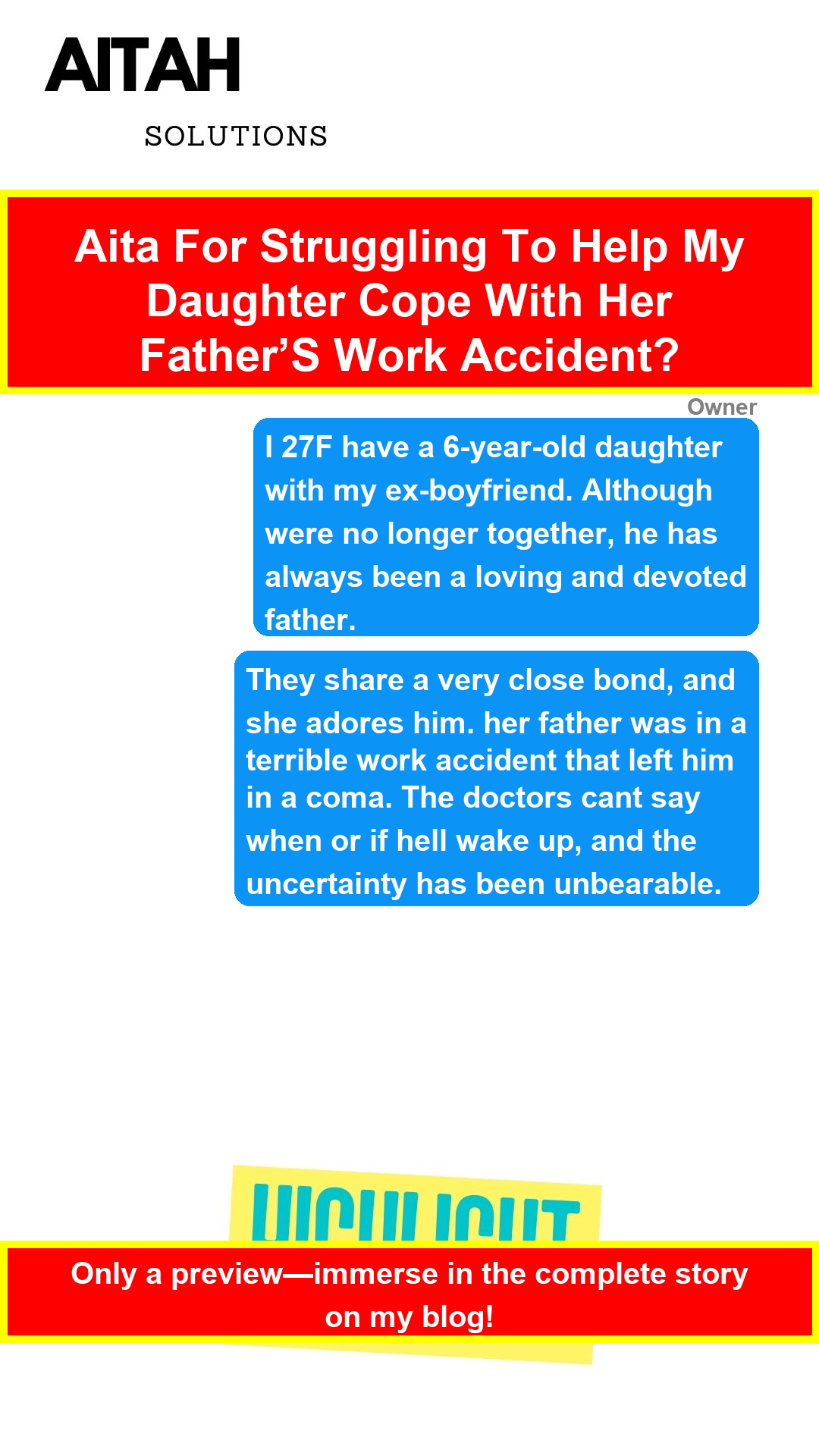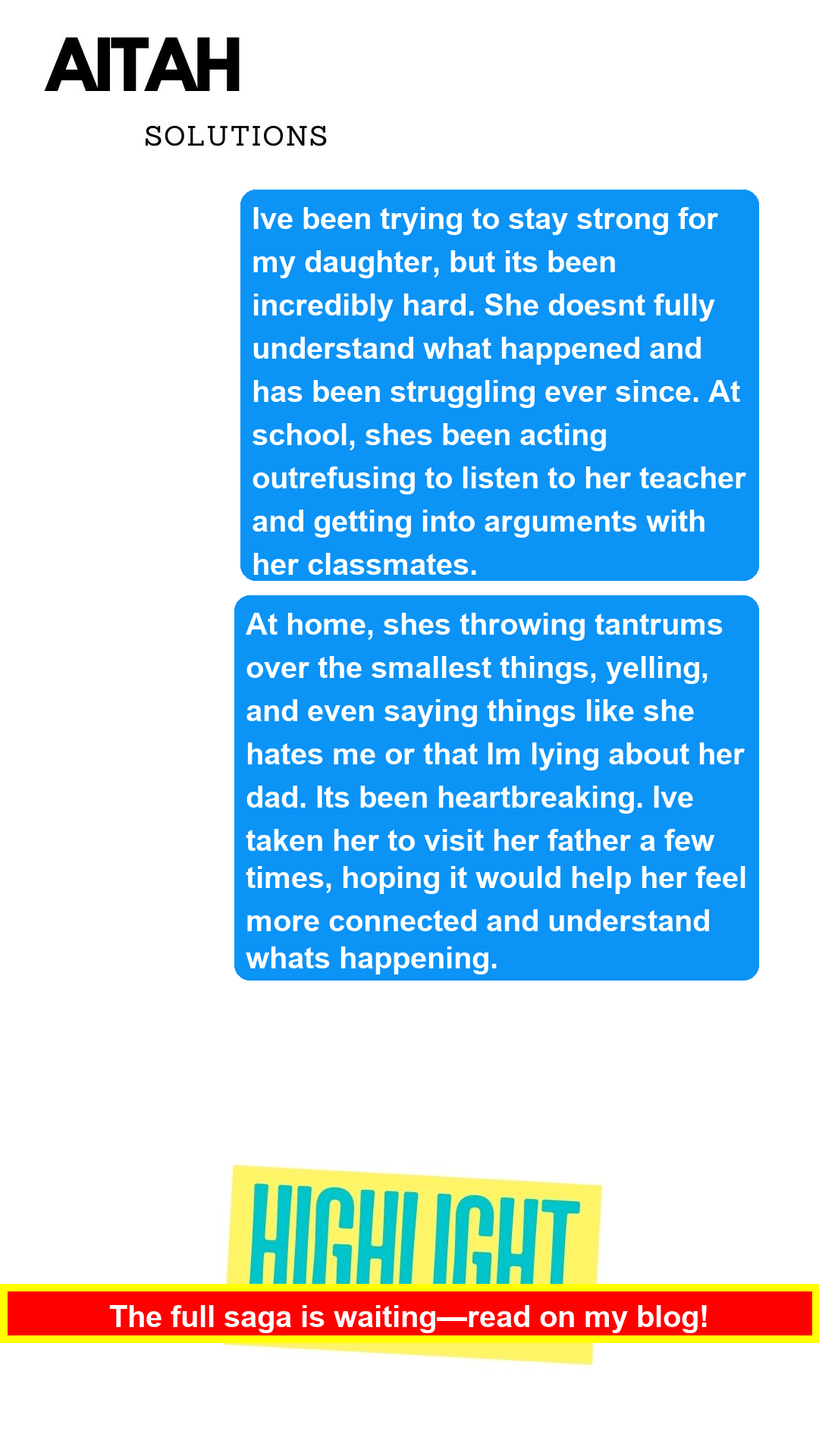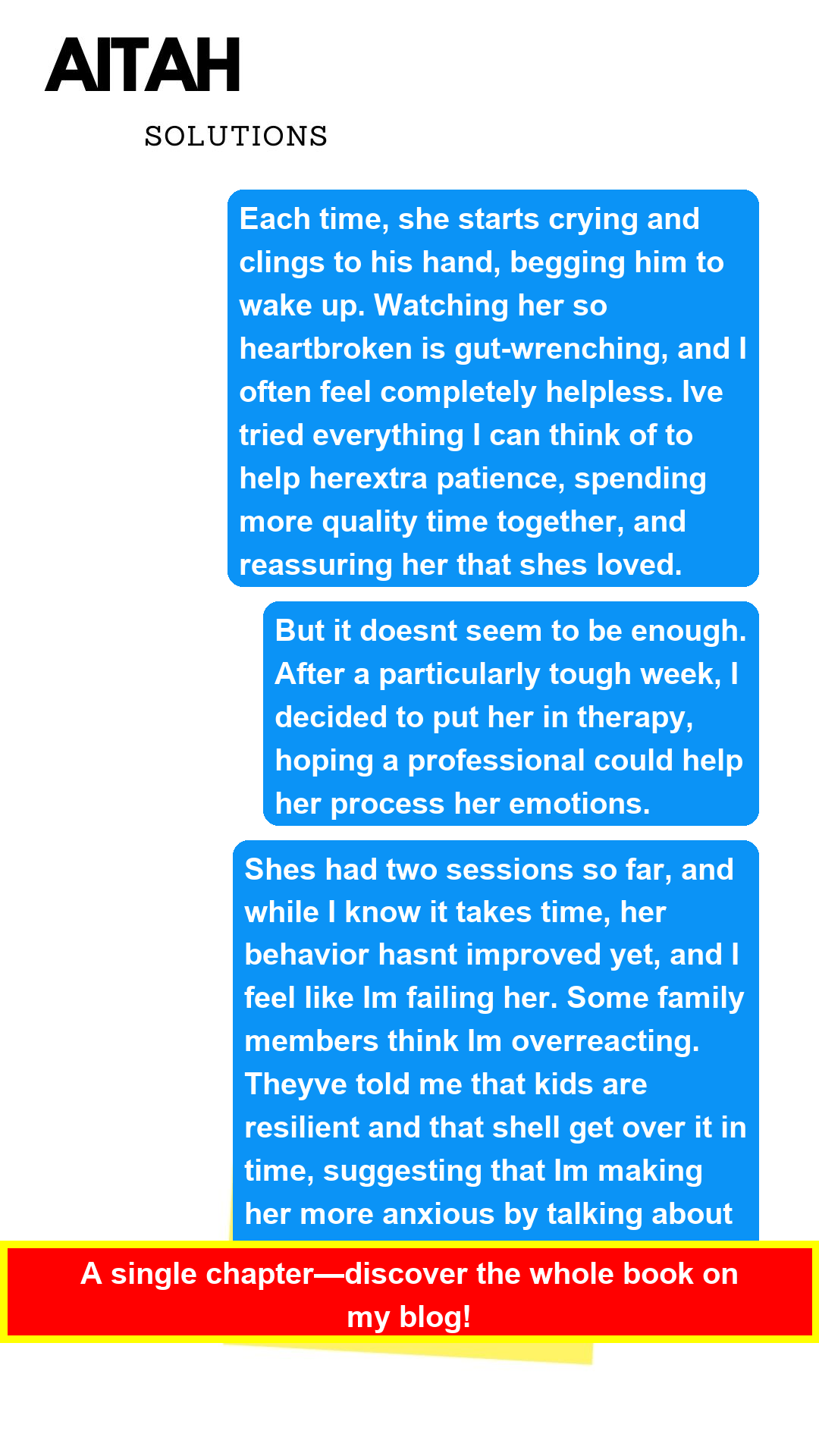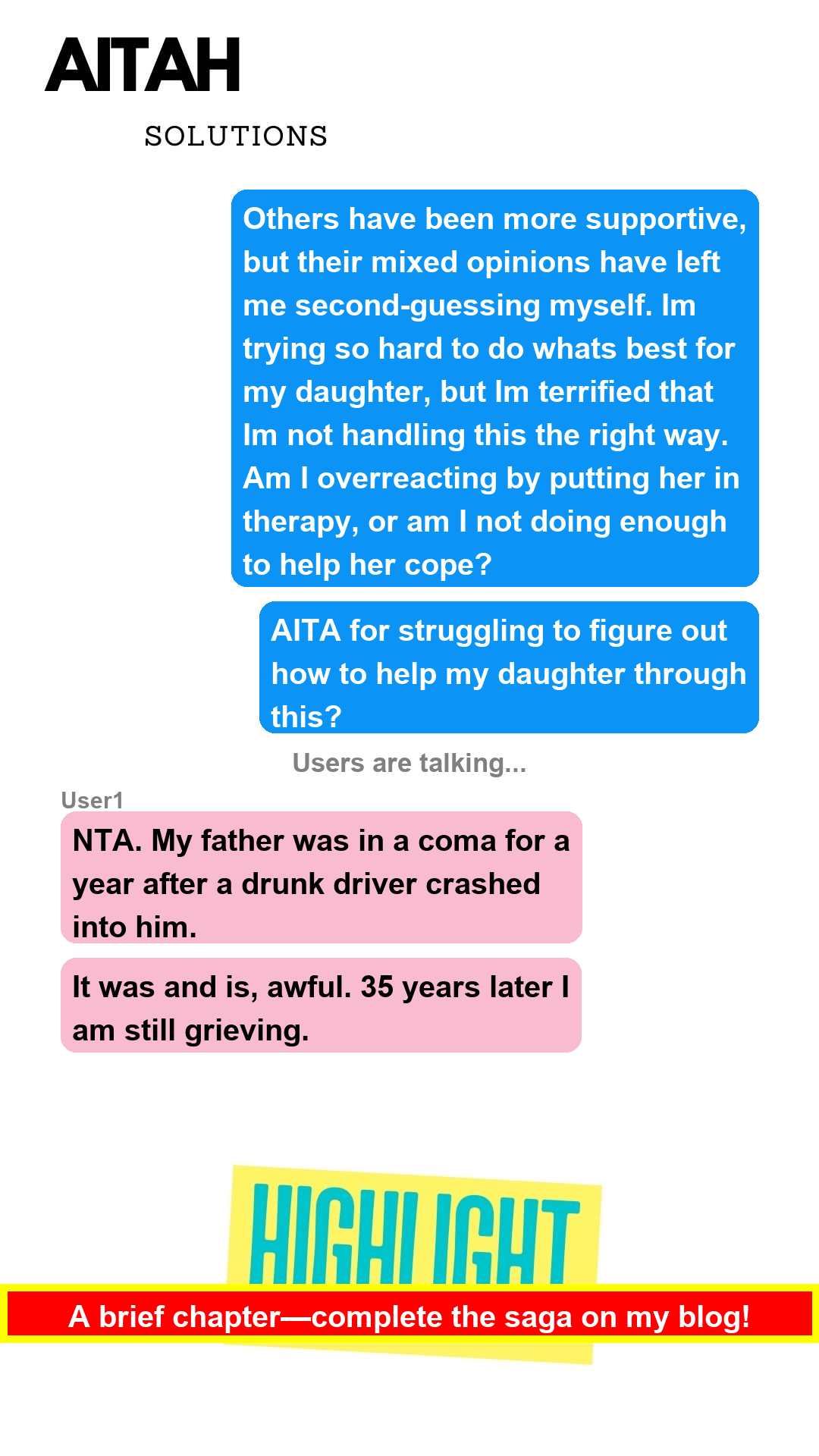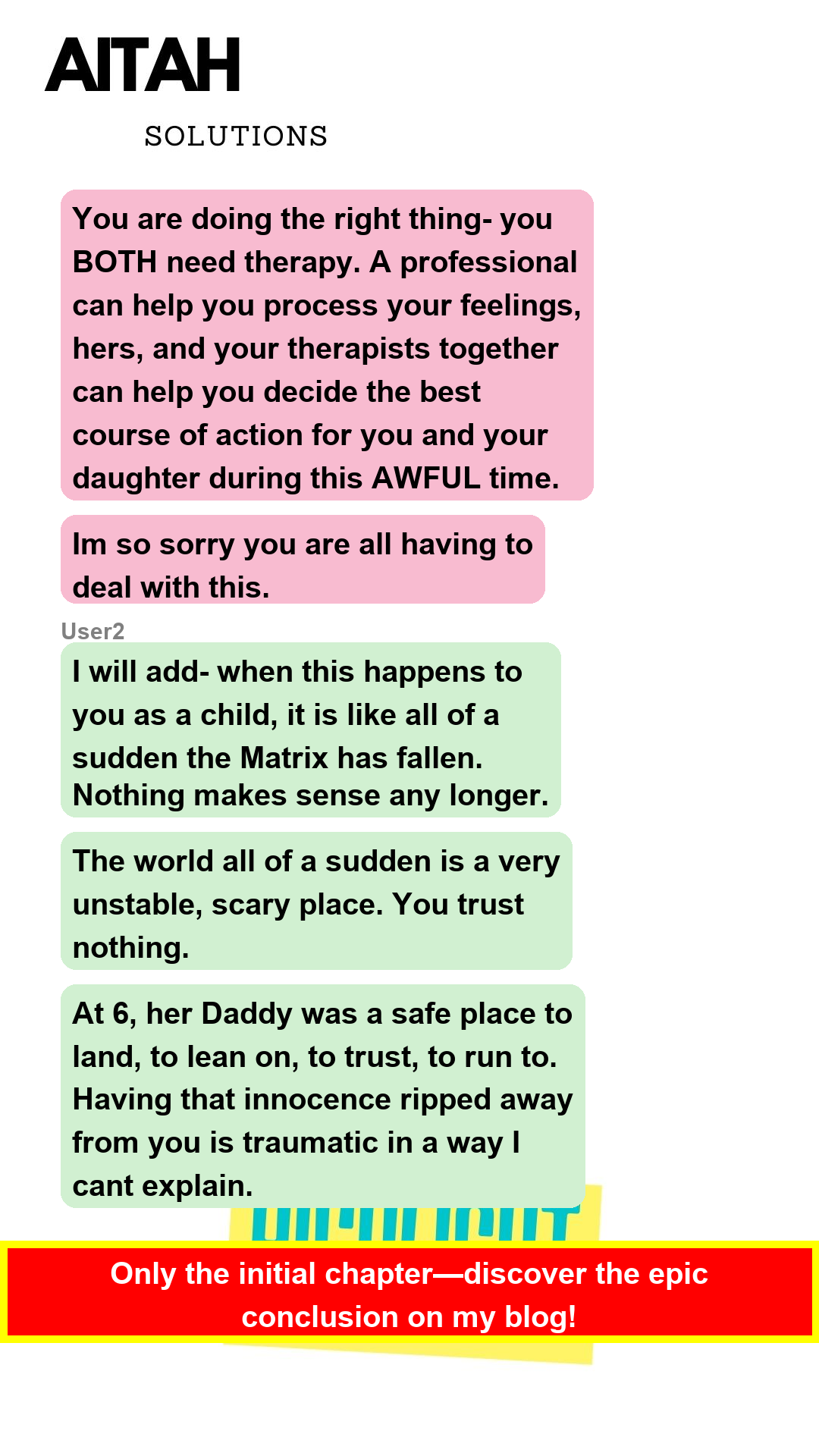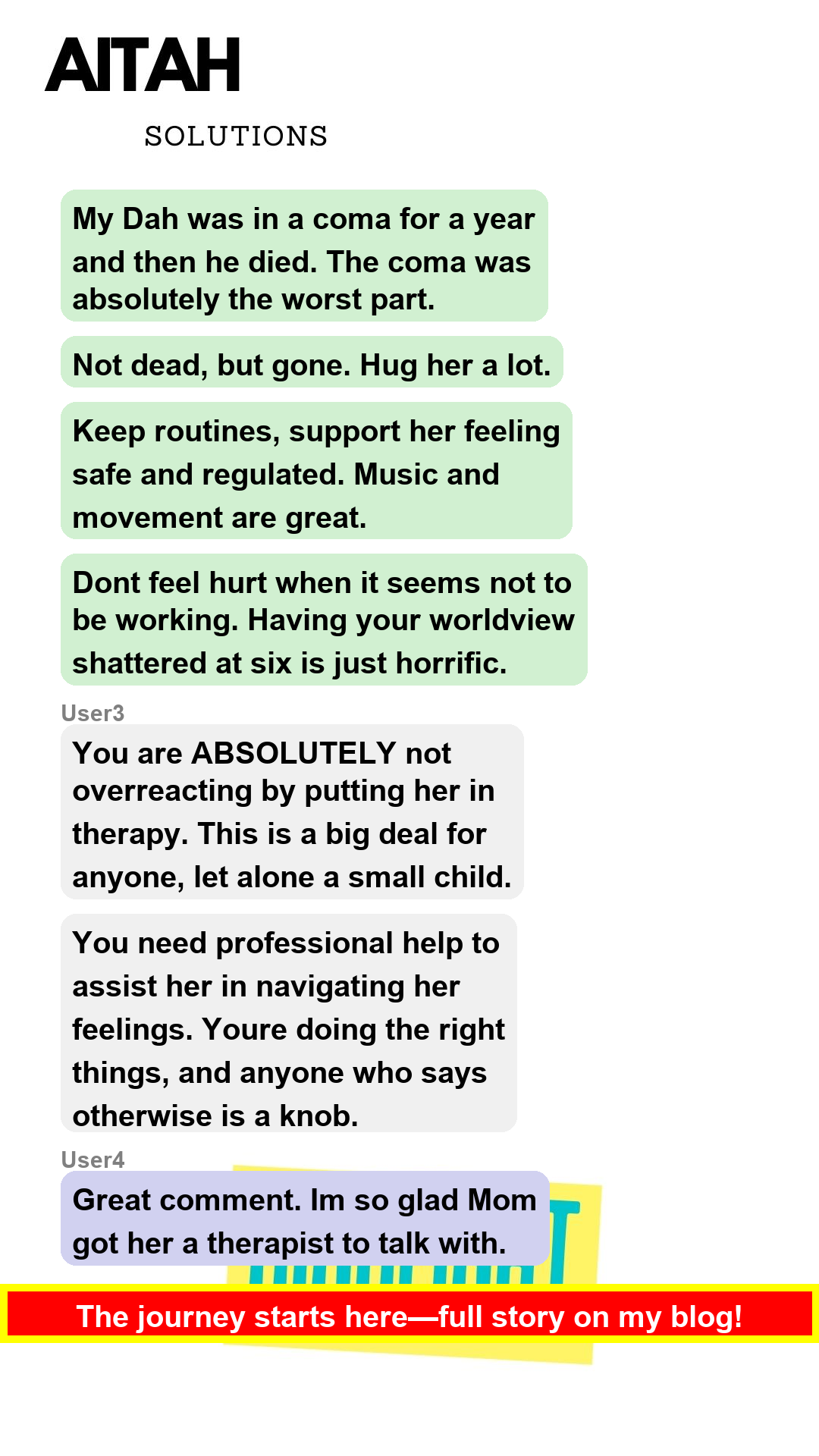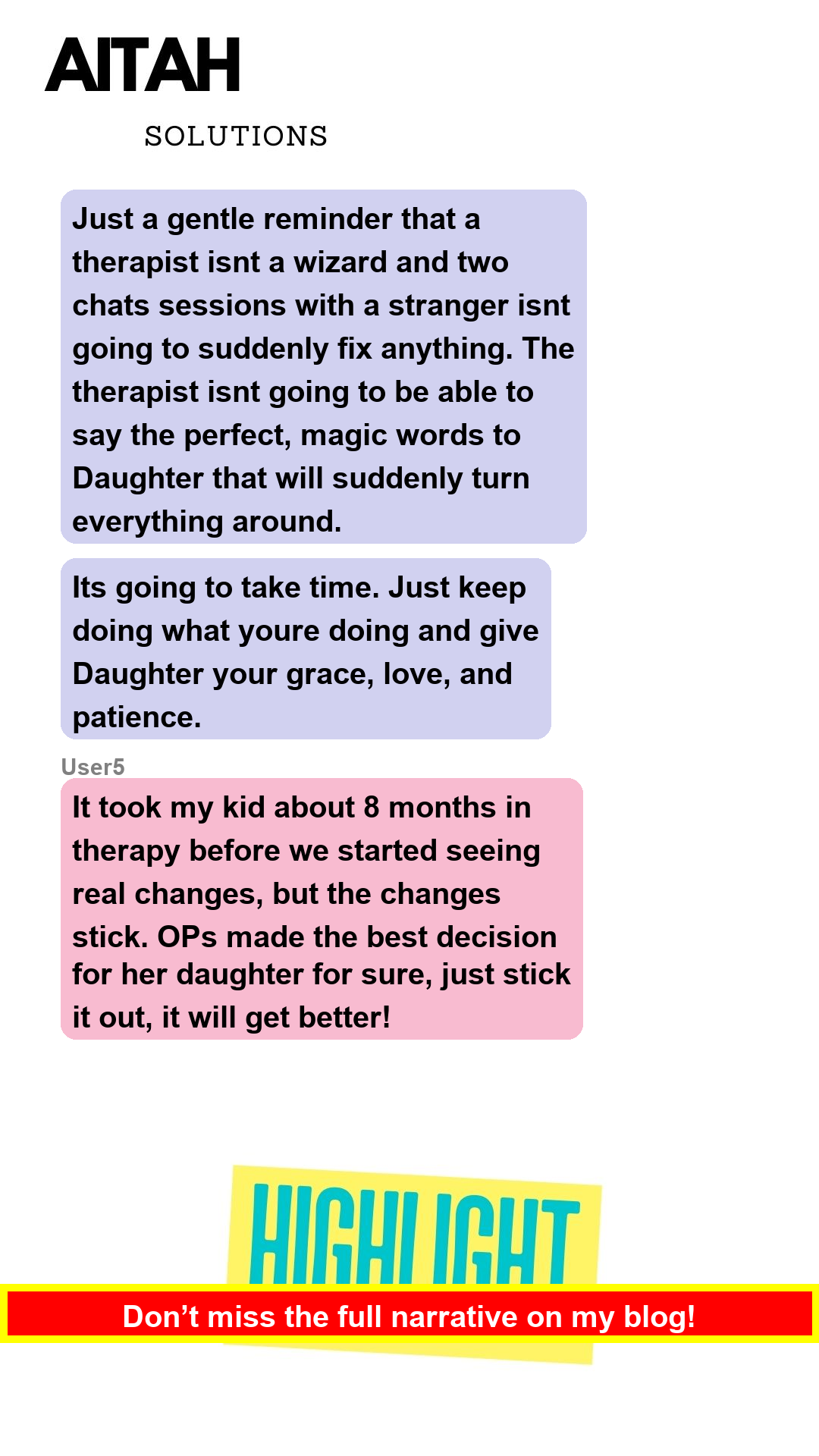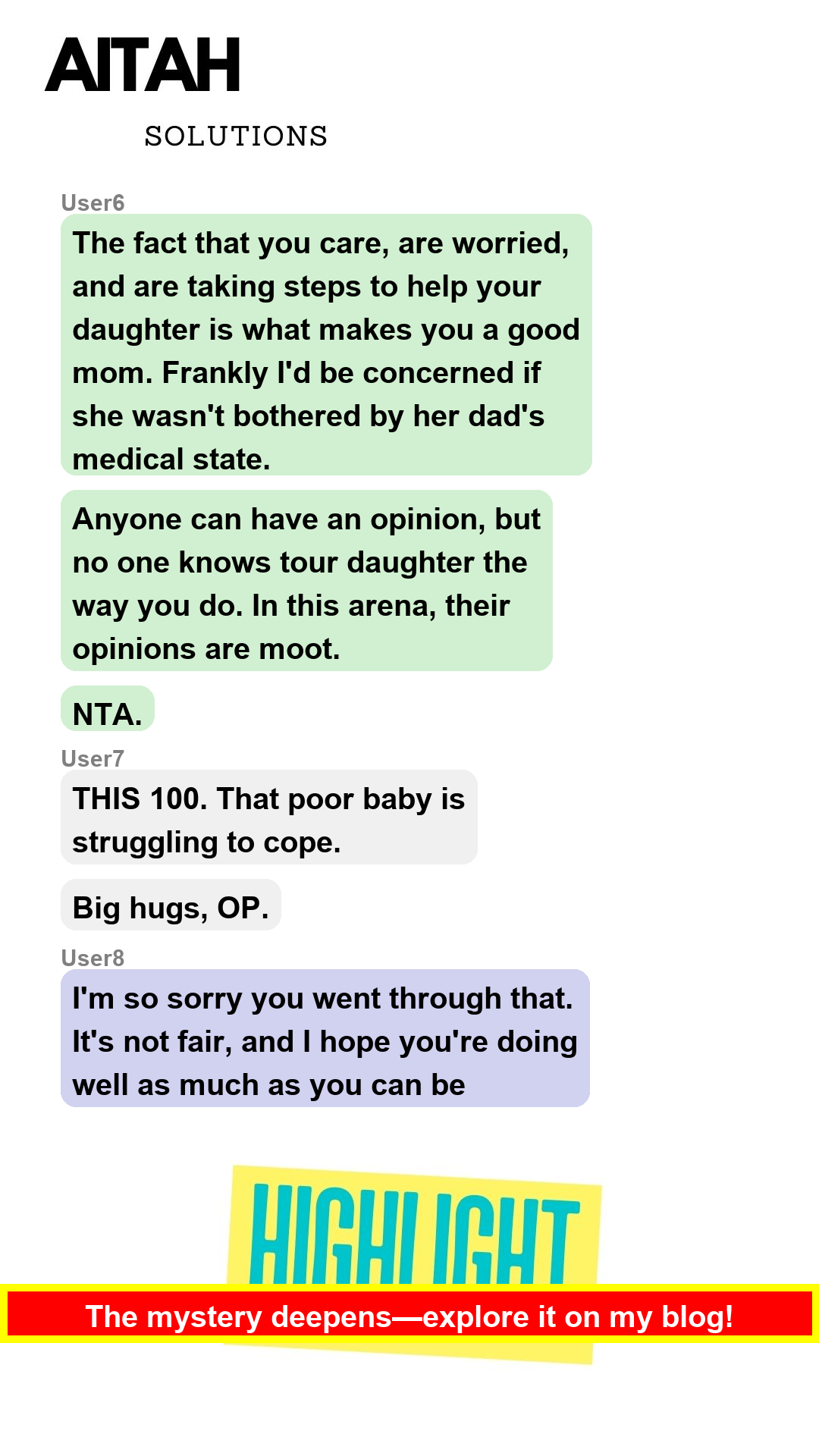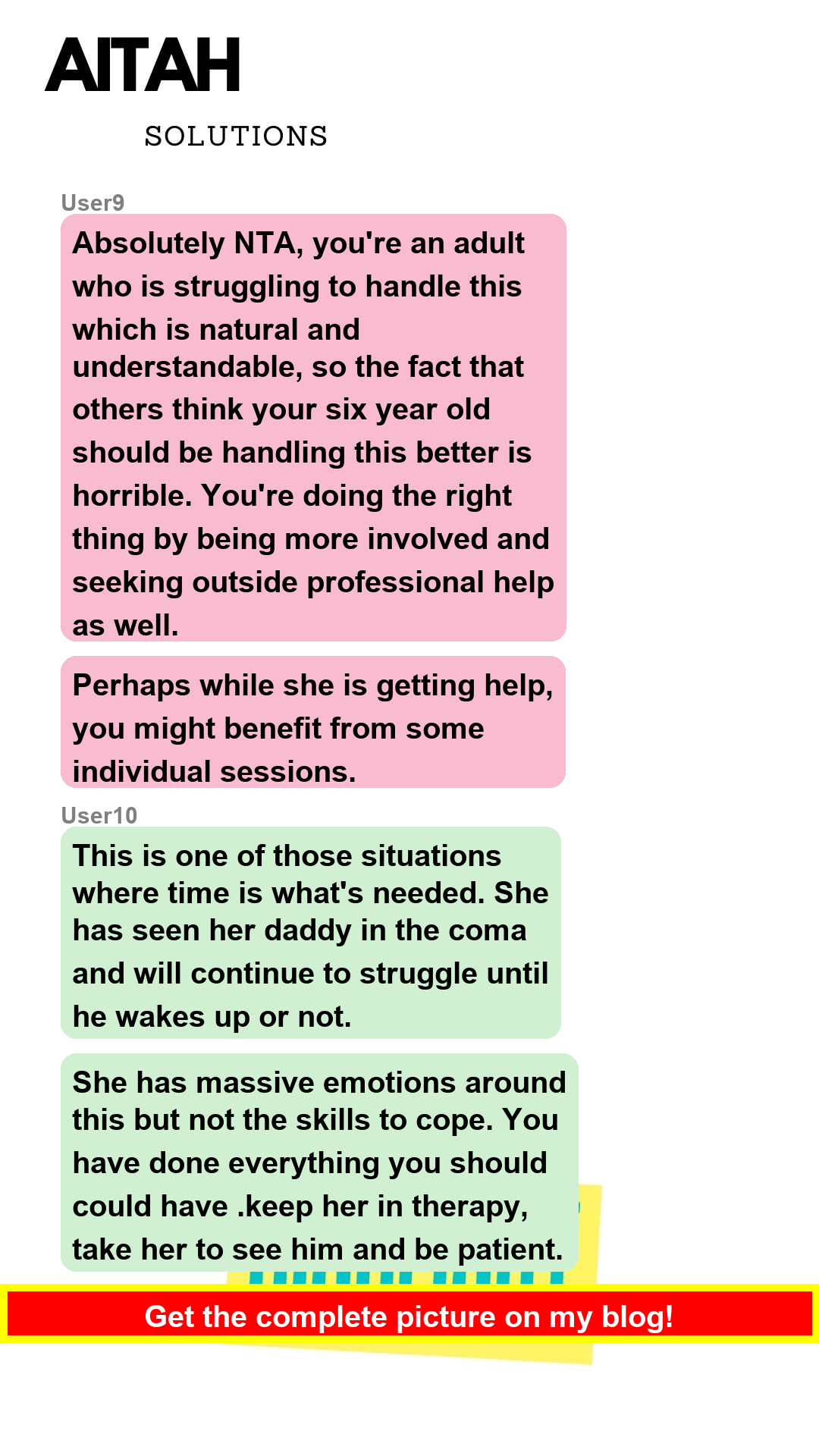AITA for Struggling to Help My Daughter Cope with Her Father’s Work Accident?
 Image credit: Pixabay (This is example image – Not the actual photo)
Image credit: Pixabay (This is example image – Not the actual photo)
Struggling to Help a Heartbroken Child
When a devoted father falls into a coma after a tragic accident, his ex-partner is left to navigate the emotional turmoil with their young daughter. As the little girl grapples with her father’s absence, her behavior spirals out of control, leaving her mother feeling helpless and overwhelmed. With mixed opinions from family and the pressure of wanting to do what’s best, she questions whether seeking therapy for her daughter is the right move or an overreaction. This poignant story resonates with anyone who has faced the challenges of parenting through trauma and uncertainty.
Family Drama and Conflict Resolution: A Mother’s Struggle
A 27-year-old mother is navigating a challenging situation following a tragic accident involving her ex-boyfriend, who is also the father of her 6-year-old daughter. The father is currently in a coma, and the uncertainty surrounding his condition has created significant emotional turmoil for both mother and child.
- Background: The mother and her ex-boyfriend share a strong co-parenting relationship, and he has always been a devoted father. Their daughter has a close bond with him, which makes the current situation even more difficult.
- Current Situation: After the father’s work accident, he fell into a coma, leaving the family in a state of distress. The mother is trying to remain strong for her daughter, but the emotional weight is heavy.
- Daughter’s Behavior: The young girl is struggling to comprehend the situation. Her behavior at school has deteriorated, leading to conflicts with teachers and classmates. At home, she exhibits signs of distress, including tantrums and verbal outbursts directed at her mother.
- Attempts to Help: The mother has taken her daughter to visit her father in the hospital, hoping to foster a sense of connection. However, these visits often result in emotional breakdowns, with the daughter pleading for her father to wake up.
- Seeking Professional Help: In an effort to provide her daughter with the support she needs, the mother has enrolled her in therapy. Although the daughter has only attended two sessions, the mother is anxious about the lack of immediate improvement in her behavior.
- Family Opinions: The mother faces mixed reactions from family members. Some believe she is overreacting and that children are naturally resilient, while others offer support. This conflicting feedback has left her feeling uncertain about her approach.
The mother is grappling with feelings of inadequacy and fear that she may not be doing enough to help her daughter cope with the trauma of her father’s accident. She is questioning whether seeking therapy was the right decision or if she is inadvertently making things worse by discussing the situation too much.
As she navigates this family drama and seeks conflict resolution, the mother is left wondering if she is overreacting or if her efforts are truly in her daughter’s best interest. The emotional toll of the situation weighs heavily on her, and she is determined to find the best path forward for her child.
This is Original story from Reddit
 Image credit: Pixabay (This is example image – Not the actual photo)
Image credit: Pixabay (This is example image – Not the actual photo)
Story
I, 27F, have a 6-year-old daughter with my ex-boyfriend. Although we’re no longer together, he has always been a loving and devoted father. They share a very close bond, and she adores him.
Her father was in a terrible work accident that left him in a coma. The doctors can’t say when or if he’ll wake up, and the uncertainty has been unbearable. I’ve been trying to stay strong for my daughter, but it’s been incredibly hard.
She doesn’t fully understand what happened and has been struggling ever since. At school, she’s been acting out—refusing to listen to her teacher and getting into arguments with her classmates. At home, she’s throwing tantrums over the smallest things, yelling, and even saying things like she hates me or that I’m lying about her dad. It’s been heartbreaking.
I’ve taken her to visit her father a few times, hoping it would help her feel more connected and understand what’s happening. Each time, she starts crying and clings to his hand, begging him to wake up. Watching her so heartbroken is gut-wrenching, and I often feel completely helpless.
I’ve tried everything I can think of to help her—extra patience, spending more quality time together, and reassuring her that she’s loved. But it doesn’t seem to be enough. After a particularly tough week, I decided to put her in therapy, hoping a professional could help her process her emotions.
She’s had two sessions so far, and while I know it takes time, her behavior hasn’t improved yet, and I feel like I’m failing her. Some family members think I’m overreacting. They’ve told me that kids are resilient and that she’ll get over it in time, suggesting that I’m making her more anxious by talking about her father’s accident too much.
Others have been more supportive, but their mixed opinions have left me second-guessing myself. I’m trying so hard to do what’s best for my daughter, but I’m terrified that I’m not handling this the right way. Am I overreacting by putting her in therapy, or am I not doing enough to help her cope?
AITA for struggling to figure out how to help my daughter through this?
View the Original Reddit Post Here
Summary of Reddit Comments
The top Reddit comments indicate a strong consensus that the original poster (OP) is not at fault (NTA) for seeking therapy for her daughter during a difficult time. Many users emphasize the importance of professional help for both the child and the parent, highlighting that the emotional turmoil caused by the father’s medical condition is significant and requires time and support to navigate. Overall, commenters express empathy and support for OP’s actions, reinforcing that prioritizing mental health is crucial in such traumatic situations.
Verdict: NTA
Expert Advice for Resolving Family Conflict
In navigating the emotional turmoil surrounding a loved one’s medical crisis, it’s essential to approach the situation with empathy and understanding. Here are some practical steps for the mother and her family to consider in resolving the conflict and supporting her daughter:
For the Mother
- Continue Therapy: Encourage your daughter to keep attending therapy sessions. Progress can take time, and consistency is key. Communicate with the therapist about your daughter’s specific needs and any concerns you have.
- Open Communication: Create a safe space for your daughter to express her feelings. Let her know it’s okay to be sad, angry, or confused about her father’s condition. Validate her emotions without trying to fix them immediately.
- Set Routine: Establish a daily routine that includes time for play, relaxation, and emotional check-ins. A structured environment can provide a sense of security for your daughter during this uncertain time.
- Seek Support: Consider joining a support group for parents in similar situations. Sharing experiences with others can provide comfort and practical advice.
- Self-Care: Remember to take care of your own mental health. Engage in activities that help you relax and recharge, whether it’s exercise, meditation, or spending time with friends.
For Family Members
- Offer Support: Instead of offering unsolicited advice, ask how you can help. Whether it’s babysitting, providing meals, or simply being there to listen, your support can make a significant difference.
- Educate Yourself: Learn about the emotional impact of trauma on children. Understanding the situation can help family members provide more empathetic support.
- Respect Boundaries: Recognize that every family handles trauma differently. Avoid pressuring the mother to follow a specific approach and respect her decisions regarding her daughter’s care.
- Encourage Open Dialogue: Foster an environment where family members can share their feelings and concerns without judgment. This can help alleviate tension and promote understanding.
Conclusion
Conflict resolution in the face of trauma requires patience, empathy, and open communication. By prioritizing mental health and supporting one another, both the mother and her family can navigate this challenging time together. Remember, it’s okay to seek help and lean on each other as you work through these emotions.
Join the Discussion
 Image credit: Pixabay (This is example image – Not the actual photo)
Image credit: Pixabay (This is example image – Not the actual photo)
What do you think? Would you have handled this differently?
Share your thoughts below! Vote: Do you agree with Reddit’s verdict?
